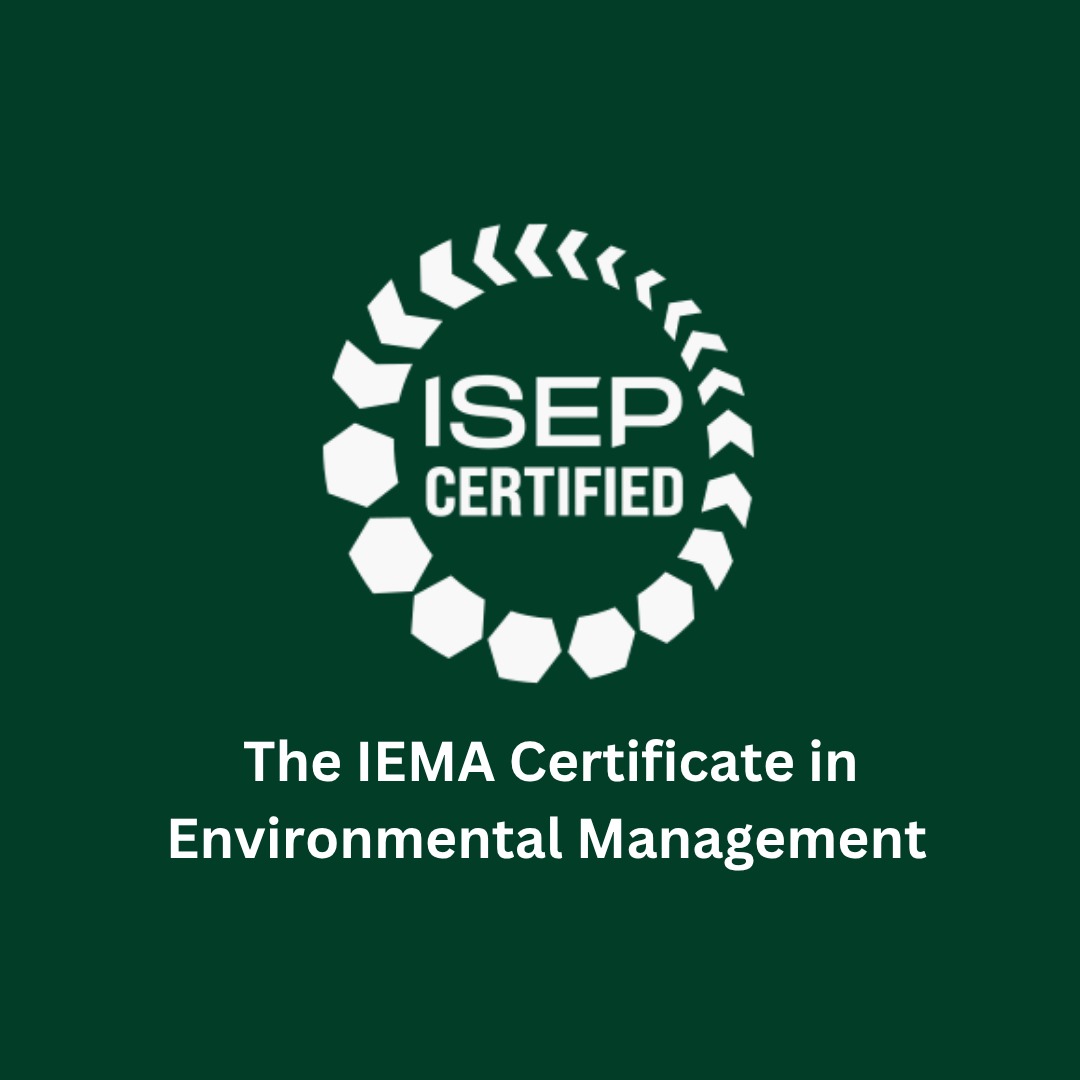
1. COURSE BACKGROUND
This course has been developed to provide learners with detailed environmental and sustainability knowledge as well as being able to apply environmental management/assessment tools and skills that are needed to be an effective environment/sustainability practitioner.
2. WHO IS THIS COURSE FOR?
This course is aimed at learners who are working within environmental management and require detailed knowledge of environmental/sustainable principles, management tools and skills to effectively deliver positive change.
Learners attending this course are expected to have a foundation level of environmental / sustainability knowledge gained through work experience or a relevant course e.g. the IEMA Foundation Certificate in Environmental Management or equivalent.
